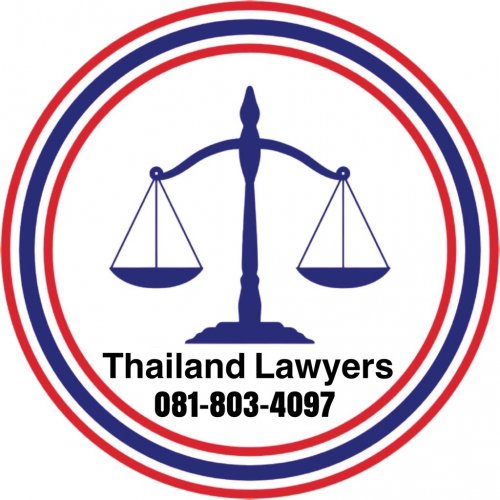Best Hiring & Firing Lawyers in Pattaya
Share your needs with us, get contacted by law firms.
Free. Takes 2 min.
List of the best lawyers in Pattaya, Thailand
About Hiring & Firing Law in Pattaya, Thailand
The realm of hiring and firing in Pattaya, Thailand, is governed by Thai labor law, which provides comprehensive regulations to ensure fair treatment of both employers and employees. It is part of the larger framework of employment law in Thailand, which stipulates requirements around employment contracts, working conditions, termination procedures, and employee rights. Understanding these laws is essential for businesses and employees to ensure compliance and avoid potential legal issues.
Why You May Need a Lawyer
There are several situations where individuals or businesses in Pattaya may require legal assistance regarding hiring and firing:
- Unlawful Termination: When an employee feels they have been unjustly dismissed without proper cause or compensation.
- Contract Disputes: Conflicts arising from the terms and execution of employment contracts.
- Workplace Discrimination: Experiencing unfair treatment based on gender, age, nationality, or other protected attributes.
- Policy Compliance: Ensuring that a company's hiring and firing policies adhere to Thai labor laws.
- Severance Pay Issues: Disagreements over the calculation or payment of severance packages.
Consulting with a legal expert can help navigate these complexities effectively and appropriately.
Local Laws Overview
Understanding local employment laws is critical for both employers and employees in Pattaya. Key aspects include:
- Employment Contracts: Contracts must be clear and comply with Thai laws, detailing wages, roles, and expectations.
- Termination Process: Employers must provide adequate notice and reasons for termination, adhering to legal requirements.
- Severance Pay: Thailand law mandates specific severance packages based on the duration of employment.
- Non-Discrimination Policies: Employers are prohibited from discriminatory practices during hiring and employment.
- Work Permits: Foreign nationals must comply with regulations regarding work permits and visas.
Frequently Asked Questions
What constitutes wrongful termination in Pattaya?
Wrongful termination occurs when an employee is dismissed without proper notice or legal justification as per the Thai Labor Protection Act.
Is severance pay mandatory in all termination cases?
Yes, in most cases, severance pay is required if an employee is terminated without cause. The amount varies depending on the length of employment.
Can employers include a probationary period in employment contracts?
Yes, probationary periods are common, typically lasting three to four months, and must be explicitly stated in the contract.
What are the rules regarding termination notice?
Employers must provide advance notice equivalent to one pay period or payment in lieu of notice unless dismissal is due to gross misconduct.
Are non-compete clauses enforceable in Pattaya?
Non-compete clauses must be reasonable in scope and duration to be enforceable under Thai law.
How can an employee file a complaint about unfair dismissal?
An employee can file a complaint with the Thai Labor Court, where disputes between employers and employees are resolved.
Is it necessary to document performance issues before terminating an employee?
While not legally required, documenting performance issues provides evidence and justification for termination, which can prevent disputes.
Can foreign workers be subjected to different termination policies?
Foreign workers are protected under the same labor laws, but they must comply with additional work permit and visa requirements.
What role does the Ministry of Labor play in hiring and firing cases?
The Ministry of Labor oversees compliance with employment laws and can investigate complaints or mediate disputes between employers and employees.
How are disputes regarding unpaid wages handled?
Disputes over wages can be taken to the Labor Protection Office, which can mediate the situation or escalate it to the labor court if necessary.
Additional Resources
For further assistance on hiring and firing legalities in Pattaya, consider the following resources:
- Ministry of Labor: Provides information and support regarding labor laws and workplace rights in Thailand.
- Labor Protection Office: Offers services for filing complaints and resolving workplace disputes.
- Thai Labor Court: Handles legal cases relating to employment and labor disputes.
Next Steps
If you need legal assistance related to hiring and firing in Pattaya, consider the following steps:
- Consult with a Lawyer: Seek an appointment with a labor law expert to discuss your situation.
- Gather Documentation: Collect any relevant employment contracts, correspondence, and evidence that may be pertinent to your case.
- Understand Your Rights: Familiarize yourself with your legal rights and obligations under Thai labor law.
- Consider Mediation: If possible, attempt to resolve the dispute through mediation or informal negotiation.
Taking these steps can help you address your legal needs and find a resolution to your hiring and firing concerns in Pattaya.
Lawzana helps you find the best lawyers and law firms in Pattaya through a curated and pre-screened list of qualified legal professionals. Our platform offers rankings and detailed profiles of attorneys and law firms, allowing you to compare based on practice areas, including Hiring & Firing, experience, and client feedback.
Each profile includes a description of the firm's areas of practice, client reviews, team members and partners, year of establishment, spoken languages, office locations, contact information, social media presence, and any published articles or resources. Most firms on our platform speak English and are experienced in both local and international legal matters.
Get a quote from top-rated law firms in Pattaya, Thailand — quickly, securely, and without unnecessary hassle.
Disclaimer:
The information provided on this page is for general informational purposes only and does not constitute legal advice. While we strive to ensure the accuracy and relevance of the content, legal information may change over time, and interpretations of the law can vary. You should always consult with a qualified legal professional for advice specific to your situation.
We disclaim all liability for actions taken or not taken based on the content of this page. If you believe any information is incorrect or outdated, please contact us, and we will review and update it where appropriate.











